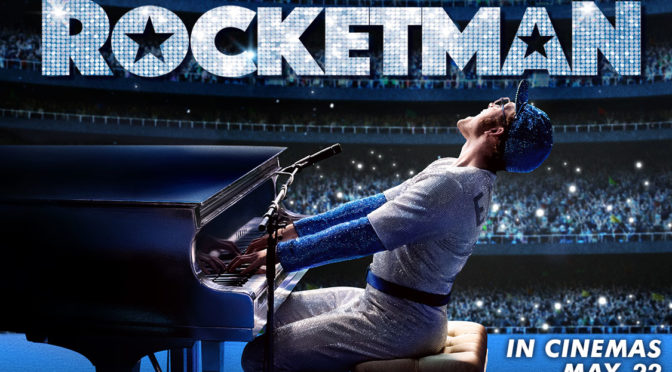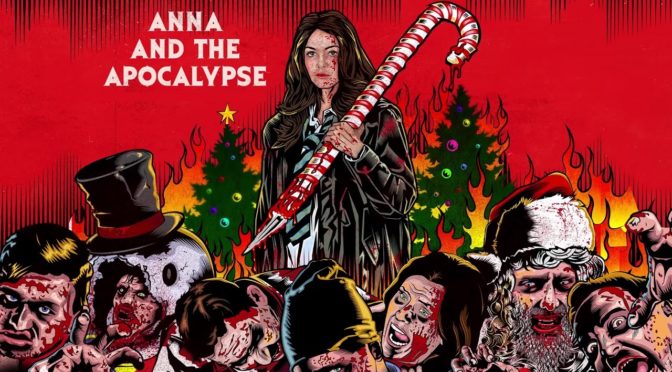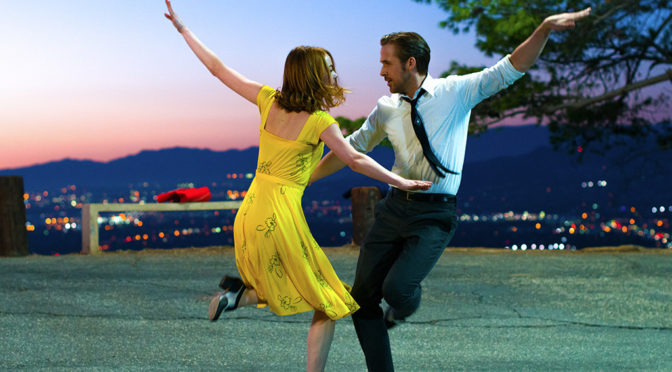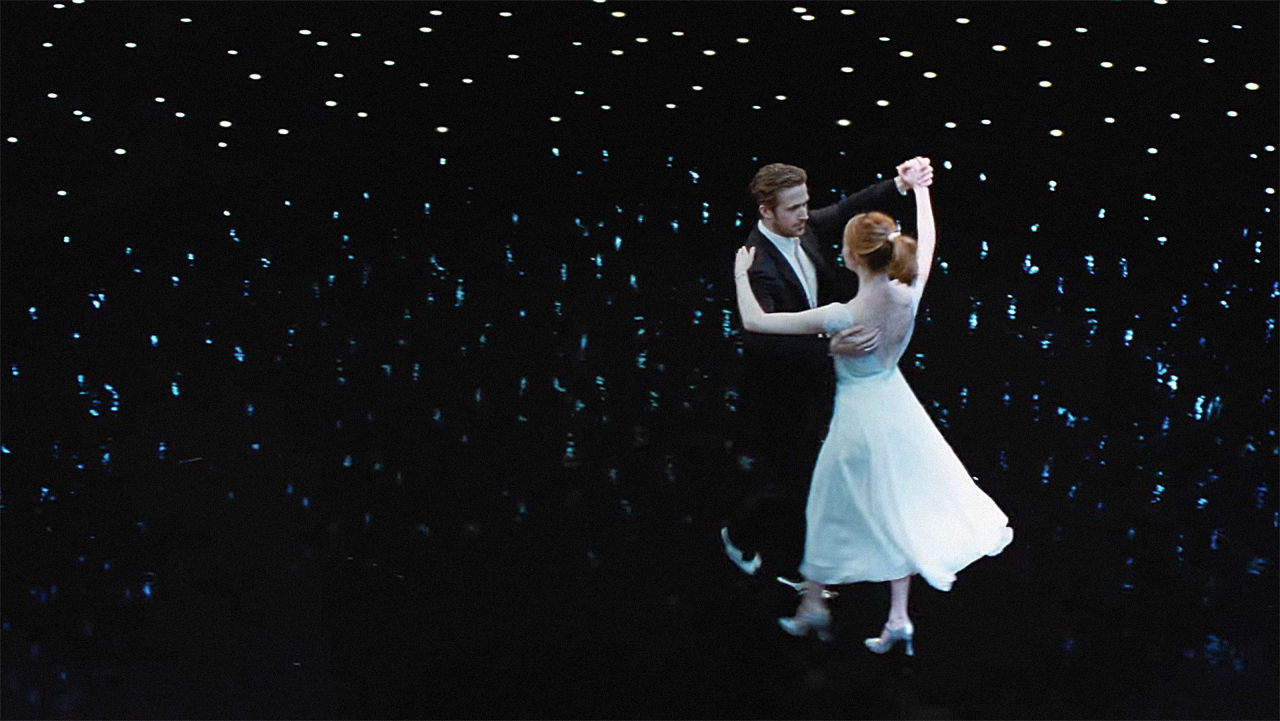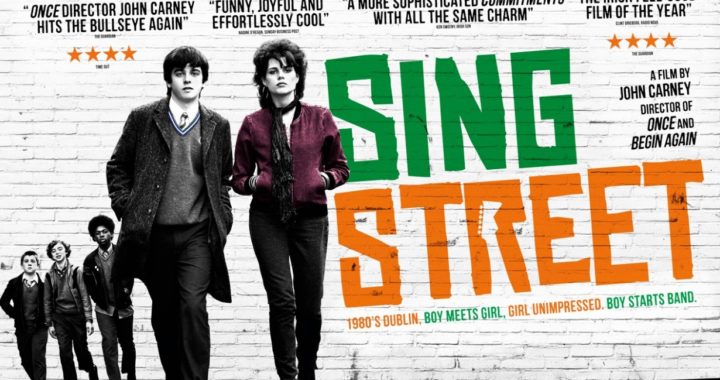After the gargantuan success of Bohemian Rhapsody, Rocketman is the latest attempt at a box office smash using the hit songs of a beloved artist. Produced by Elton John himself and directed by Dexter Fletcher (Eddie the Eagle), who stepped in to direct Bohemian Rhapsody when its original director was fired mid-production, the film opens with Elton John (Taron Egerton; Kingsman: The Secret Service) telling the story of his life at an Alcoholics Anonymous meeting.
Unlike most biopics about musicians, Rocketman is a full-on musical. Rather than reserving music for on-stage performances, the characters burst into song at any moment making the film feel like a jukebox musical in the vein of Mamma Mia!. The dance numbers are expansive with dozens of extras and a pace that distinguishes the film from others in the genre. The rapidly tracking camera and organized chaos of the backing dancers give these sequences a frantic energy that aligns with John’s rapid rise to fame. There are times when the musical segments are expected, during a key emotional moment for example, but Fletcher ingeniously transitions to song in several unexpected situations. The clever transitions and frenzied choreography add cinematic flair and keep the music visually interesting.
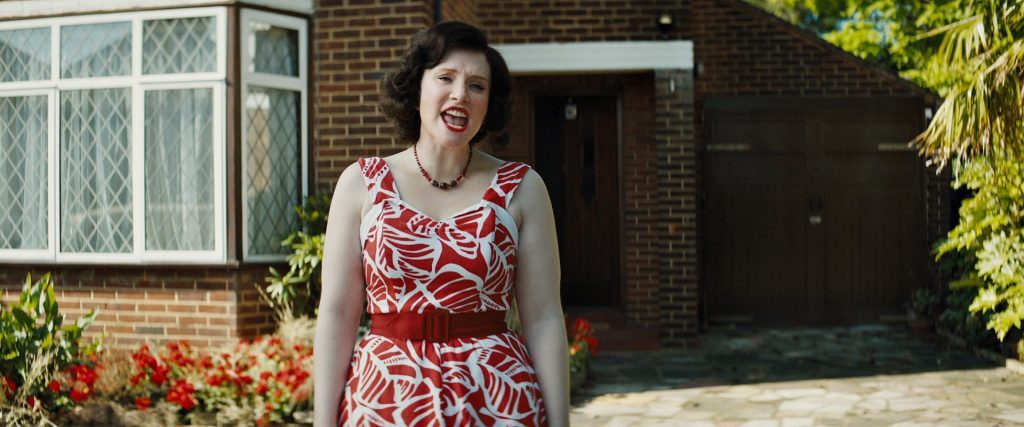
The basic plot is fairly standard. It’s amazing how so many one-of-a-kind superstars like Freddie Mercury and Elton John can have their life stories boiled down to essentially the same sequence of events. A child from a humble background exhibits preternatural musical talent, but is born into a conservative family that doesn’t fully approve of their passion and desired lifestyle. The child grows into an adult that meets key partners and quickly ascends into incredible success before falling prey to substance abuse only to apologize to their loved ones and redeem themselves around the 2 hour mark. There is nothing particularly surprising about what happens in Rocketman.
Within the usual story beats, Fletcher focuses on John’s unique problem. He continually emphasizes the lack of affection in John’s upbringing with a cold, distant father and an often cruel mother. As a child, he asks his father “When are you going to hug me?” and, more than anything else, this film is about a man in desperate need of a warm embrace. His later actions, and his mistakes, stem from his lack of love and, regardless of the success he achieves, the film cuts back to images of his younger, helpless self. But Fletcher doesn’t shy away from blaming John for his decisions. His erratic moods and mistreatment of those closest to him are his own undoing and Egerton grasps his spiral out of control. Edgerton carries John’s emotional pain in his performance and brings an exceptional singing voice as well. It’s a shame that the script doesn’t explore John’s enduring relationship with his co-writer Bernie Taupin (Jamie Bell; Billy Elliot) as this is a major and unique element to John’s story.
Rocketman delivers the extravagant musical setpieces worthy of Elton John, supported by a strong performance from Egerton, but is held back by its extremely familiar plotting.

3/5 stars.
